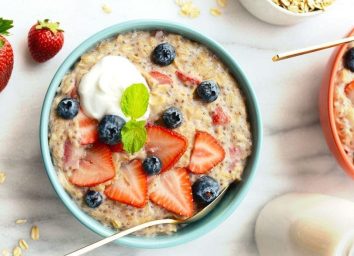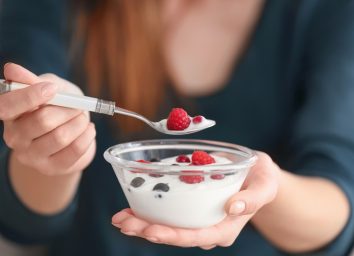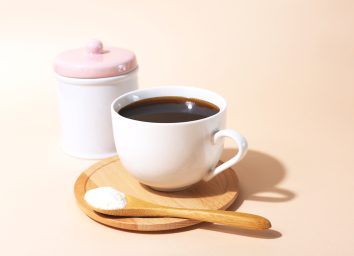6 Drinking Habits Causing Chaos on Your Blood Sugar, Say Dietitians
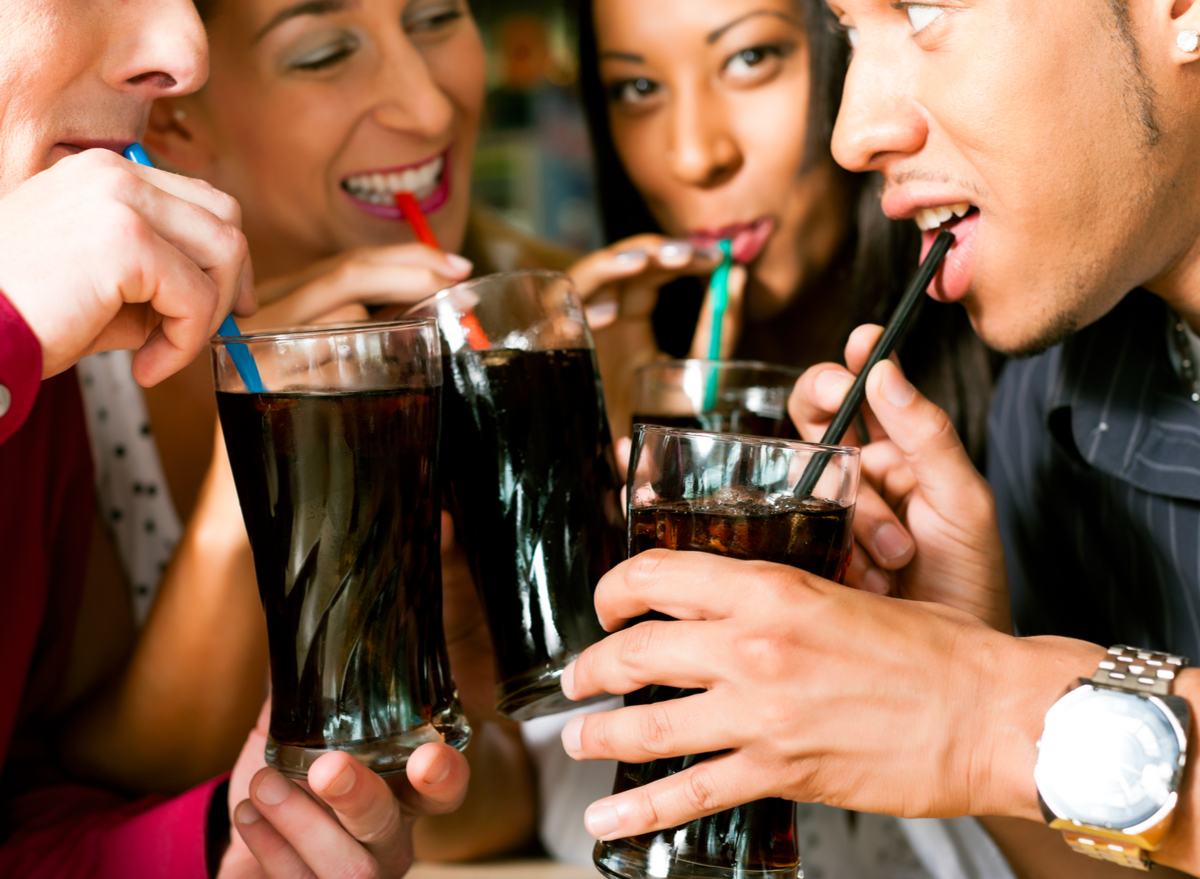
Diabetes is often called “the silent disease” because it sneaks up on you. High blood sugar, the precursor to prediabetes and type 2 diabetes, doesn’t have outward symptoms. It doesn’t hurt.
“That’s what’s so scary about high blood sugar; you don’t feel any different until you reach the point where you need medication,” says Molly Wagman, RDN, certified diabetes care, and education specialist and head of clinical operations for 9am.health.
The Centers for Disease Control and Prevention estimates that 96 million American adults have prediabetes and 80% of them don’t know they have it. That’s why screening is so important, and the American Diabetes Association in 2022 lowered its recommended age for screening by 10 years to include all adults age 35 and older.
If you’re in that age category, get one of these tests: A1C, fasting plasma glucose, or oral glucose tolerance. Knowing you have high blood sugar is important because of what type 2 diabetes can do to your entire body, namely damaging your blood vessels, kidneys, eyes, and heart.
If you need your blood glucose levels checked, you can always talk to a doctor. But if you’re looking for a less invasive clue to see if you might be heading down the path to a diabetes diagnosis, examine your daily drinking habits.
Your go-to beverages can cause chaos to your blood sugar just as easily as your habit of eating high-carb and sugar-laden desserts, baked goods, white bread, rice, and other processed grain products. Wagman warns that sugar-sweetened beverages are even more insidious than food because liquid goes down so easily.
“In a few sips, you can consume the carbohydrate and sugar equivalent of an entire meal,” she says.
Knowing how certain drinking habits (like those listed below) can raise your blood sugar to unhealthy levels and cause problems over time may help you to replace those bad beverage habits with healthier ones.
Drinking soda or sweet tea
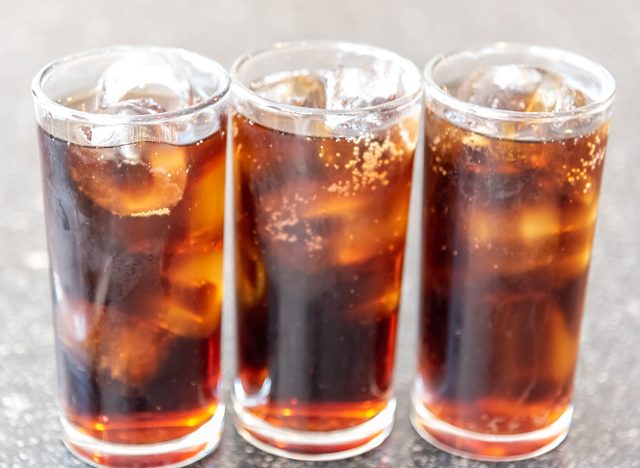
You know this: Soda and other sugar-sweetened beverages are bad news for your blood sugar. A study of more than 300,000 people in the journal Diabetes Care found that people who drank one to two servings of sugar-sweetened beverages daily had a 26% greater risk of developing type 2 diabetes than those who drank less than once a month. While soda and sweet tea are obviously loaded with sugar, you may not realize how many added sugars go into commercial beverages.
“Read the nutrition facts label for carbohydrates and grams of added sugar,” says Kimberly Pierpont, RD at The Ohio State University Wexner Medical Center. “Anything containing carbohydrates can raise your blood sugar.”
Also check the ingredients list for these other names for sugar: cane sugar, corn syrup, high-fructose corn syrup, honey, syrup, brown sugar, agave nectar, glucose, maltose, molasses, raw sugar.
“Pairing sugary beverages with a meal containing protein and healthy fats can lessen the blood sugar spike,” says Pierpont.
Drinking specialty coffees
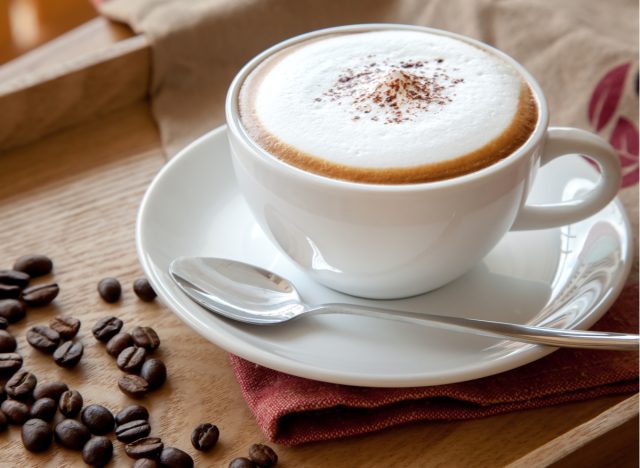
It’s not the coffee per se that’s the problem; black coffee is full of healthy polyphenols. Altering coffee with sweet creamers, however, turns your coffee cup into the equivalent of a can of soda.
“Adding high-calorie, high-fat sweeteners or creamers increases the likelihood of your regular coffee beverage causing weight gain,” says Trista Best, RD at Balance One Supplements. “One of the worst drinking habits for those who want to control their blood sugar is consuming high sugar and fat specialty coffees.”
Taking coffee black is the healthiest form, and it doesn’t take long for you to develop a preference for coffee unencumbered by sugar and cream.
Drinking drinks that seem healthy but aren’t
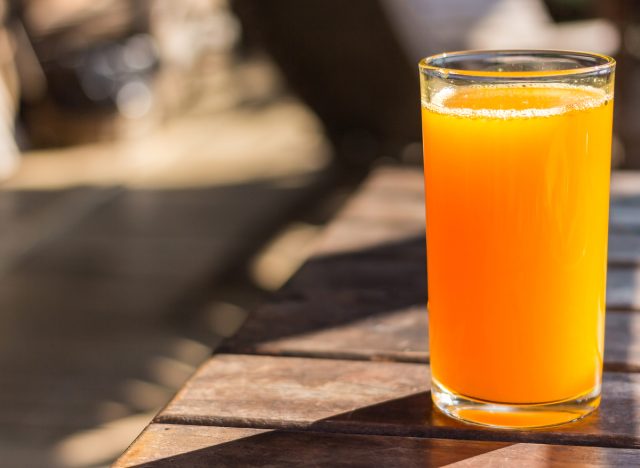
Some of these labels include “All-Natural Energy Drink,” “100% Real Juice,” and “Made with Organic Fruit.” But those “health masks” as Wagman calls them, won’t fool your body.
“Popular energy drinks, sports beverages, and tea drinks made with herbs, they are almost always made with lots of added sugars to make them sweet,” says Wagman.
Even 100% pure orange juice will likely spike your blood sugar.
“Just four ounces—three sips for me—is the equivalent of the fructose in a medium orange,” she says. “Eat the orange instead and get all the nutrients and the fiber.”
Drinking frozen beverages on a hot day
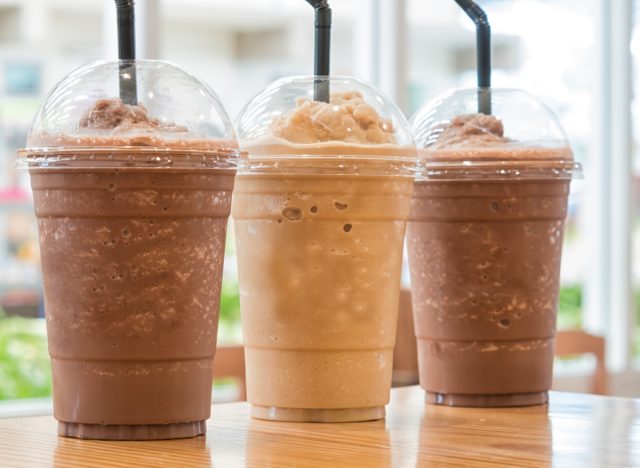
News Flash: Adding ice to coffee or drinking frozen beverages doesn’t make a difference to your blood sugar. If the drink has sugar in it, the ice won’t make it any healthier. But for some reason some people think sweet, iced coffee or a slush drink on a hot day is A-OK even when concerned about high blood sugar.
“A typical 20-ounce slush drink packs about 83 grams of sugar,” says Steve Theunissen, RDN, a certified personal trainer and writer for SmartFitnessResults. “You’ll be hard-pressed to find a commercial slushie with less sugar, but you can make a healthier version at home with fruit. Recipes are just a quick internet search away.”
Theunissen recommends avoiding iced coffees and sports drinks, too, which usually contain 74 and 34 grams of sugar respectively per 20 ounces.
Drinking milk-based smoothies
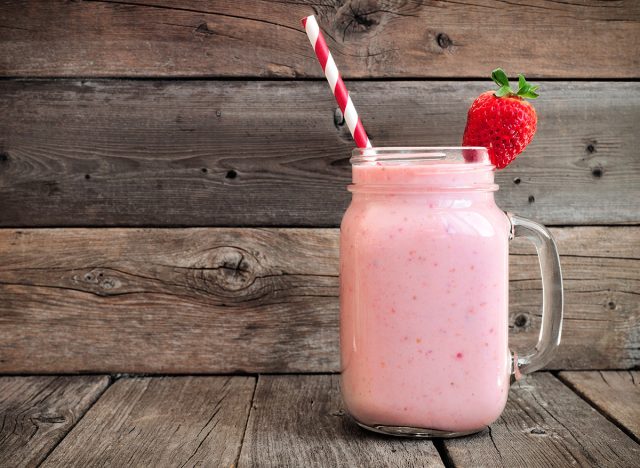
“Smoothies can be a sneaky beverage that can affect your blood sugar,” warns Katie Tomaschko, RDN with Sporting Smiles. “While thought of as ‘healthy,’ smoothies can be loaded in sugar from sweeteners in plant-based milk, such as added sugar, agave, or honey.”
Also keep in mind that cow’s milk contains a natural sugar called lactose, which contributes to the total amount of sugar you are consuming.
“While most smoothies contain vegetables or fruits (with the pulp included) that contain fiber, which can help prevent blood sugar spikes, it is important to exercise caution with these beverages if you are dealing with diabetes or prediabetes,” says Tomaschko.
Drinking alcohol
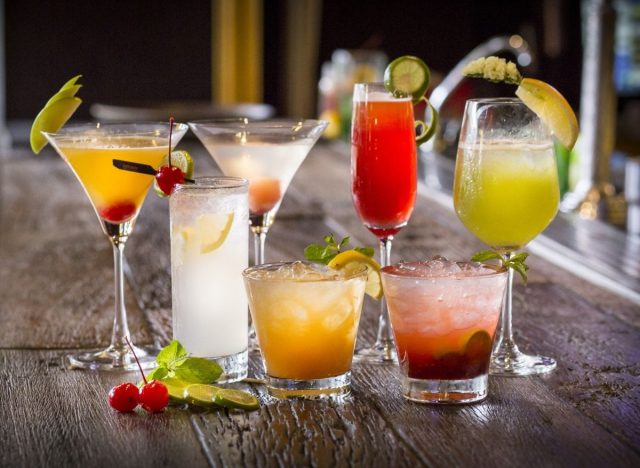
Even though a shot of whiskey or other hard liquor contains no sugar, many of the mixers that go into cocktails contain sugars. Wine has sugar and carbohydrates, beer contains carbs. So, regular drinking “may result in a rise in blood sugar levels as well as the possibility of weight gain,” says David Brendan, RDN, a certified personal trainer with Start Rowing.
“Alcohol alters the way the liver generates glucose, which can cause a sudden dip in blood sugar called hypoglycemia,” says Brendan. “Insulin users should be mindful of the effects of drinking on their blood glucose levels.”
Wagman points to another fact of adult beverage consumption that can affect your blood sugar levels: the food you eat during and after drinking.
“Alcohol lowers inhibitions, so after having a few drinks you are more likely to choose large portions of high-carb foods or even order more drinks,” she says.
Now that you’re on your way to breaking drinking habits that can lead to diabetes, check out these Eating Habits to Avoid if you have high blood sugar.

